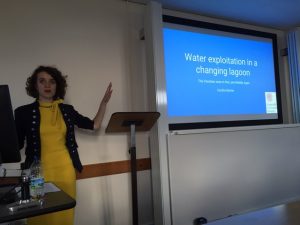We are delighted to publish the programme of the previously announced one-day workshop ‘Revolutions and Classics’, co-organised by our very own Prof. Barbara Goff and Dr Rosa Andújar (UCL):
Friday 22 July 2016
IAS Common Ground, University College London
1000-1010 coffee and welcome
Chair: Rosa Andújar, UCL
1010-1040 Rachel Foxley , University of Reading, Innovation and revolution in seventeenth-century England
1040-1110 Nicholas Cole, Pembroke College Oxford, The Classics and the American Revolution — two centuries of controversy
1110-1120 break
Chair: Phiroze Vasunia, UCL
1120-1150 Sanja Perovic and Rosa Mucignat, King’s College London, The Legend of Pythagoras: Narrating Revolutionary Failure in Sylvain Maréchal and Vincenzo Cuoco
1150-1220 Sebastian Robins, Independent, Ancient Greek Texts in the Age of Revolution: John Gillies Orations of Lysias and Isocrates 1778 and Aristotle’s Ethics and Politics 1797
1220-1315 lunch
1315-1400 early career teaching roundtable:
Chair: Katherine Harloe, University of Reading
Emma Cole, University of Bristol, Classical Reception Pedagogy in Liberal Arts Education
Luke Richardson, University College London, Teaching the Classical Reception “Revolution”.
Carol Atack, University of Warwick, Precarity and protest: performing politics in Aristophanes’ Lysistrata
1400-1430 discussion
1430-1500 teaching presentations:
Chair: Barbara Goff, University of Reading
Susan Deacy, University of Roehampton, Black Athena in the classical classroom
Joanna Paul, Open University, tbc
1500-1545 discussion, followed by tea
Chair: John Bloxham, Nottingham and OU
1545-1615 Rosa Andújar, University College London, Plato and Pater’s Greeks in the Mexican Revolution
1615-1645 Benjamin Gray, University of Edinburgh, Studying the modern German Left as Ancient History: from Jean Jaurès to Alexander Kluge
1645-1715 Michael Simpson, Goldsmiths, University of London, Of Minotaurs and Macroeconomics: Greek Myth and Common Currency
1715-1800 reception
https://www.ucl.ac.uk/classics/events/revolutionsandclassics



